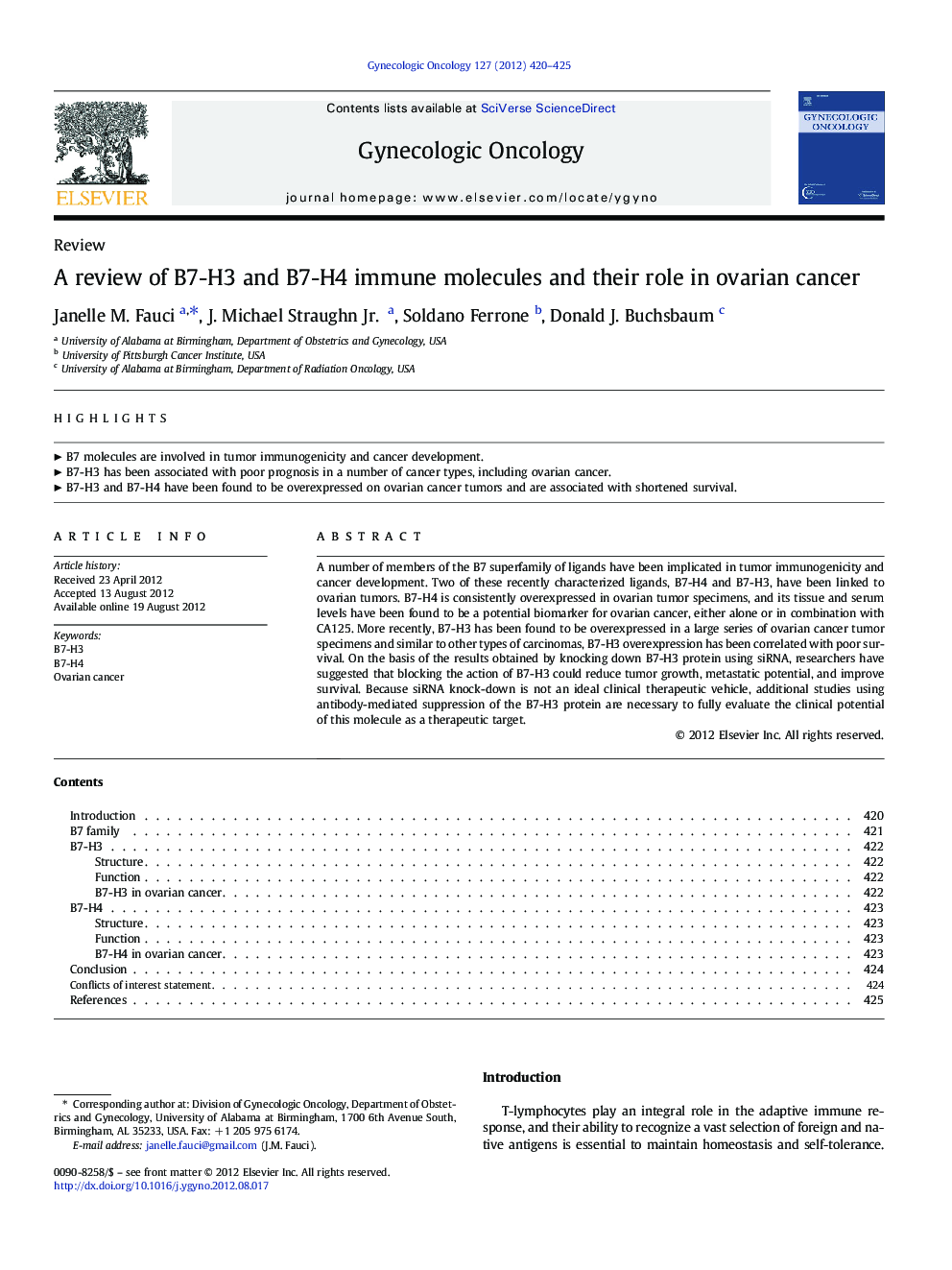| Article ID | Journal | Published Year | Pages | File Type |
|---|---|---|---|---|
| 3944940 | Gynecologic Oncology | 2012 | 6 Pages |
A number of members of the B7 superfamily of ligands have been implicated in tumor immunogenicity and cancer development. Two of these recently characterized ligands, B7-H4 and B7-H3, have been linked to ovarian tumors. B7-H4 is consistently overexpressed in ovarian tumor specimens, and its tissue and serum levels have been found to be a potential biomarker for ovarian cancer, either alone or in combination with CA125. More recently, B7-H3 has been found to be overexpressed in a large series of ovarian cancer tumor specimens and similar to other types of carcinomas, B7-H3 overexpression has been correlated with poor survival. On the basis of the results obtained by knocking down B7-H3 protein using siRNA, researchers have suggested that blocking the action of B7-H3 could reduce tumor growth, metastatic potential, and improve survival. Because siRNA knock-down is not an ideal clinical therapeutic vehicle, additional studies using antibody-mediated suppression of the B7-H3 protein are necessary to fully evaluate the clinical potential of this molecule as a therapeutic target.
► B7 molecules are involved in tumor immunogenicity and cancer development. ► B7-H3 has been associated with poor prognosis in a number of cancer types, including ovarian cancer. ► B7-H3 and B7-H4 have been found to be overexpressed on ovarian cancer tumors and are associated with shortened survival.
